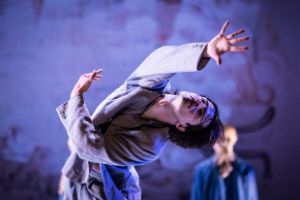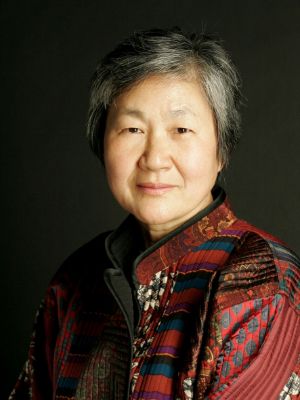

Younghi Pagh-Paan © Si-Chan Park
Younghi Pagh-Paan
Younghi Pagh-Paan was born in Cheongju in South Korea in 1945 and studied music theory and composition at the Seoul National University from 1965 to 1972. She first came to Germany on a DAAD scholarship where she studied with Klaus Huber (composition) and Brian Ferneyhough (analysis) at the Hochschule für Musik (University of Music) Freiburg from 1974 to 1979. Following guest professorships in Graz (1991) and Karlsruhe (1992), she was appointed as the first female professor for composition in Germany at the University of the Arts Bremen where she became professor emeritus in 2011. She established an atelier for contemporary music at this institution and was intensely involved in the development of a studio for electro-acoustic music. As a teacher of composition, she fostered a diverse range of artistic individuals including Samir Odeh-Tamimi, Brigitta Muntendorf, Farzia Fallah, Klaus Lang and Genoël von Lilienstern.
Younghi Pagh-Paan was a significant pioneer within the field of contemporary composition on two levels. She was one of the first female composers on the music scene then dominated by men and therefore a spearhead of compositional emancipation. What is more, she was a pioneer of intercultural composition within the spheres of Asia and Europe and substantially integrated elements of Korean music into the compositional techniques of the western avant-garde.
The premiere of “Sori” for large orchestra at the festival Donaueschinger Musiktage in 1980 ensured Pagh-Paan’s international reputation. Her preoccupation with existential and political themes and artistic transformation of discrimination, suppression and violence shaped her profoundly humanistic music which frequently took its inspiration from poetry of a wide variety of cultural circles.
Pagh-Paan is the recipient of numerous international awards: the Heidelberger Künstlerinnenpreis (1995) [prize for female artists], the Lifetime Achievement Award from Seoul National University (2006), the Order of Civil Merit of the Republic of Korea (2007), the 15th KBS Global Korean Award (2009), the Senate Medal far Art and Sciences from the Free Hanseatic City of Bremen (2011), the Paiknam Prize Seoul (2013), the European Church Music Prize and in 2020 the Grand Art Prize from the Akademie der Künste Berlin of which she has been a member since 2009.
As of: March 2025